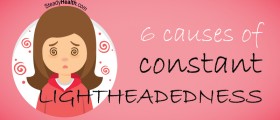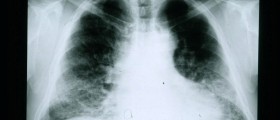
Introduction to Dizziness
Dizziness can be defined as a feeling of lightheadedness and loss of stability. It is a common symptom of many illnesses and it can also develop due to certain physiological changes in the body. People suffering from dizziness complain about the feeling that everything around them is spinning. They become weak and in some cases may even lose consciousness. The actual cause of dizziness lies either in an insufficient supply of blood to the brain or it is associated with certain disorders of the vestibular system.
What are Causes of Dizziness?
One of the most common causes of dizziness is a change in blood pressure. A sudden drop in blood pressure is almost always accompanied by dizziness. In extreme cases significant and unexpected drop in blood pressure may result in loss of consciousness. This reaction of the body can be easily explained. Namely, if the blood pressure is low the brain is not well supplied with oxygen and other nutrients and the person faints. Apart from dizziness a sudden drop of blood pressure may also cause several more symptoms and signs such as sweating, nausea, vomiting etc. Even increased blood pressure may induce dizziness. In this case additional symptoms include headache and nausea.
Heat strokes are capable of inducing dizziness. The conditions develops in people who have been exposed to the sun for long period of time without proper protection (hats and adequate clothes). The condition can cause intensive headaches, fatigue, heat exhaustion and heat cramps.
Another common cause of dizziness is dehydration. It develops, as a consequence of insufficient intake of water or increased loss of water and other fluids via urine and excessive perspiration. Loss of water and other fluids may occur in cases of prolonged vomiting and diarrhea.
Furthermore, a variety of inner ear disorders are capable of causing dizziness. This particularly refers to benign paroxysmal positional vertigo, inflammation of the inner ear, Meniere's disease, migrainous vertigo, acoustic neuroma etc.
People suffering from certain heart conditions may suffer from occasional dizziness. Dizziness is also a symptom for, heart attack, cardyomyopathia (decompensated), cardiac arrhythmia, rapid heart rate and even slow heart rate.
Certain medications can be associated with the onset of dizziness. The problem most commonly occurs if a person is taking beta blockers, diuretics, ACE inhibitors, some antibiotics, sedatives, pain killers, tranquilizers and antidepressants.
And finally, dizziness is a normal physiological feature of pregnancy. This symptoms generally affect women during the first trimester of pregnancy although it can develop at any time during pregnancy.

















Your thoughts on this
Loading...